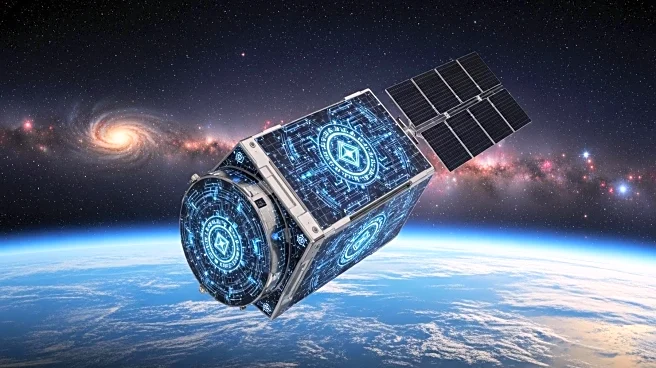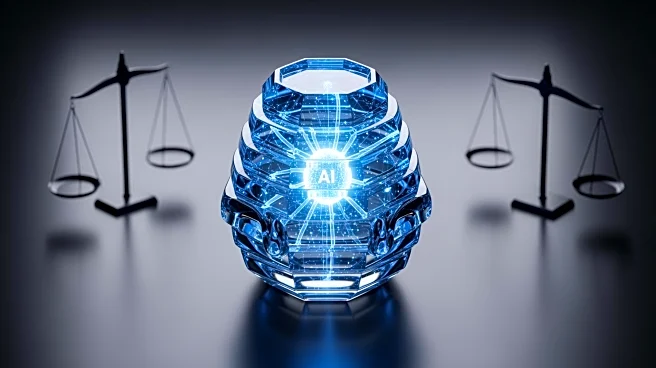What is the story about?
What's Happening?
Lockheed Martin is advancing its cybersecurity capabilities by integrating SpiderOak's OrbitSecure software to protect satellite data. This move is part of a broader trend in the space cybersecurity sector, which is experiencing significant growth and strategic consolidation. The sector is projected to expand from $4.8 billion in 2024 to $11.8 billion by 2034, driven by mergers and acquisitions, public-private partnerships, and AI-driven solutions. Lockheed Martin's collaboration with SpiderOak exemplifies the importance of public-private partnerships in securing competitive advantages. The U.S. Space Force's 2025 International Partnership Strategy further highlights the role of alliances in countering threats in space.
Why It's Important?
The integration of advanced cybersecurity solutions like SpiderOak's OrbitSecure is crucial for protecting satellite communications and ground systems, which are vital for national security and commercial operations. As satellite constellations expand, the attack surface increases, necessitating robust cybersecurity measures. Lockheed Martin's actions reflect a strategic imperative to secure space-based infrastructure, which is essential for maintaining technological and geopolitical leadership. The company's focus on AI-driven threat detection positions it as a leader in the defense technology sector, potentially influencing industry standards and practices.
What's Next?
The space cybersecurity market is expected to continue its rapid growth, with services like continuous threat monitoring and incident response becoming increasingly important. Lockheed Martin and other industry leaders are likely to further embed AI and machine learning into their offerings, enhancing real-time threat detection capabilities. The U.S. Space Force's emphasis on international collaboration suggests that future developments will involve scaling solutions across borders and industries, potentially leading to new partnerships and innovations.
Beyond the Headlines
The strategic consolidation in the space cybersecurity sector may lead to ethical and legal considerations regarding data privacy and international cooperation. As companies acquire niche players to enhance their offerings, the balance between competition and collaboration will be crucial in shaping the industry's future. The integration of AI-driven solutions also raises questions about the long-term implications for workforce dynamics and technological dependency.















